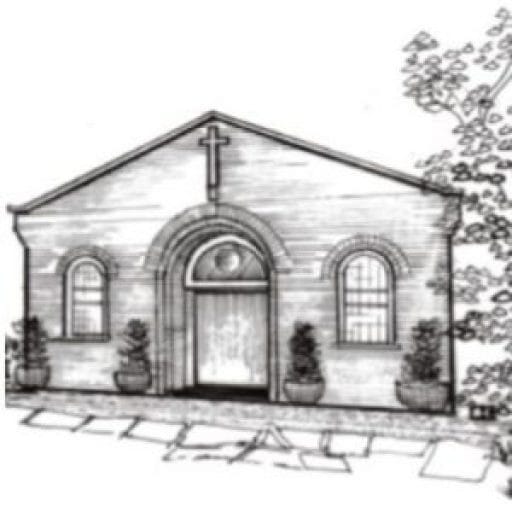A very important consideration to make when trying to understand the presence of deacons within the life of the Church is first of all to identify the ‘right’ question to ask about them. To begin with, let us try to resist the temptation of simply asking, “What can a deacon do or not do?” This is normally asked by way of comparison with the ministry of the priest, in which case we risk seeing the deacon, sadly, as ‘less than’ the priest. Instead begin by asking, “Who is the deacon?”.

“Believe what you read, teach what you believe, and practice what you teach.” – Words of the Bishop at the ordination of a deacon
Who is the Deacon?
“The first deacons, seven men, were called from the community to serve their Bishop.” (cf. Acts 6:2-4)
Deacons are not mini-priests, or father’s helpers, or enhanced lay people. Deacons are ordained to be the sacramental sign and presence of Christ the Suffering Servant, “who came not to be served but to serve and to give his life as a ransom for many.” (cf. Matthew 20:28) The vocation of the deacon is complimentary to that of the priest and it is distinct from it. Together the priest and the deacon take a share in the ministry of the bishop.
The Church lays before us all the three-fold ministry of the deacon: He is servant (and minister) of the Word, servant of altar, and servant of charity (CCC 1543, 1570). These are outward expressions of ‘who’ the deacon is at his core.
Servant of Service
The deacon’s vocation is one of service. But what and who is he called to serve? Once he is ordained in the Mass he goes before the Bishop and kneels to receive the Book of the Gospels. The Bishop then instructs him with the words, “Believe what you read, teach what you believe, and practise what you teach.” So the deacon is servant of the gospel of Jesus Christ; servant of the Church, the People of God. An awesome privilege and blessed burden!
Servant of the Word
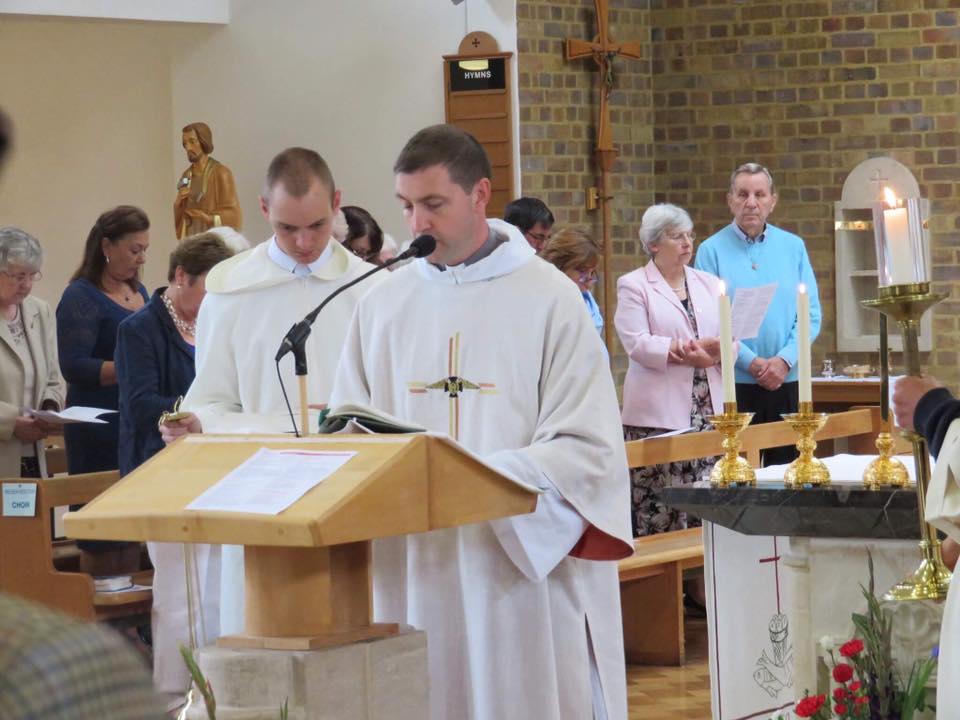
The deacon is called to proclaim the Gospel in the Mass and at other solemn gatherings of the People; he is called to preach the homily at Mass and generally help the People understand the Scriptures. So when the deacon preaches at Mass he is not simply giving the priest a week off that duty, rather he is fulfilling an important aspect of his ministry as deacon. In taking into his heart and living out the Word of God, to the best of his ability with the help of God’s grace, in everyday life, he is bearing witness to the gospel message and so serving the Word of God!
Servant of the Altar
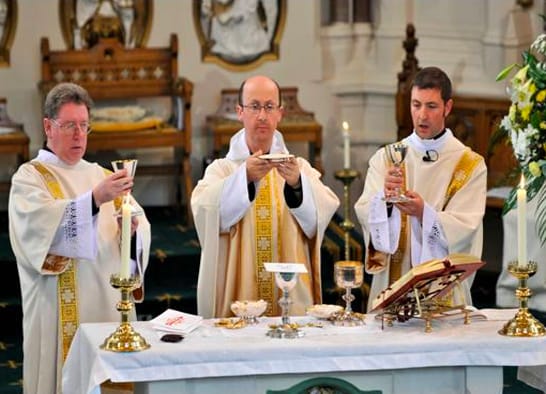
When the deacon is officiating at Mass he is modelling service for the Christian life for all the whole Church to see and imitate. At the same time, he is carrying out a real and practical service to assist the priest and the People gathered. The Church teaches that the deacon, in the Liturgy, is a bridge between the sanctuary/altar and the pews, between the priest and the People. This is why, for example, he (usually) issues instructions such as calling us to proclaim the mystery of faith, reads the prayers of intercessions, invites the people to share the sign of peace, and issues the dismissal at the end of Mass.
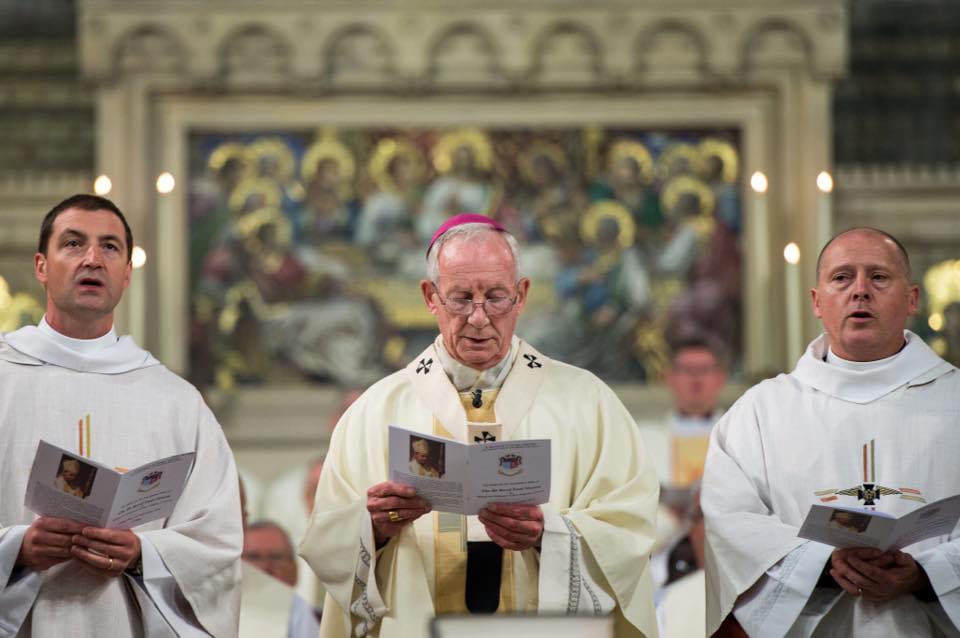
This role is real and practical, but it is also, crucially, meant to be an indicator of his broader role in the Church – a visible sign of service. To express it this way: the priest is called to be Christ in the church, celebrating and administering the Sacraments; the deacon is called to be Christ in the world, celebrating and heralding the Word of God in action. A powerful image of this is seen when the deacon processes into church at the beginning of Mass carrying high the Book of the Gospels. Together the deacon and the priest collaborate in support of the ministry of the Bishop, who himself represents and makes present to us the fullness of Christ’s ministry as High Priest.
Servant of Charity
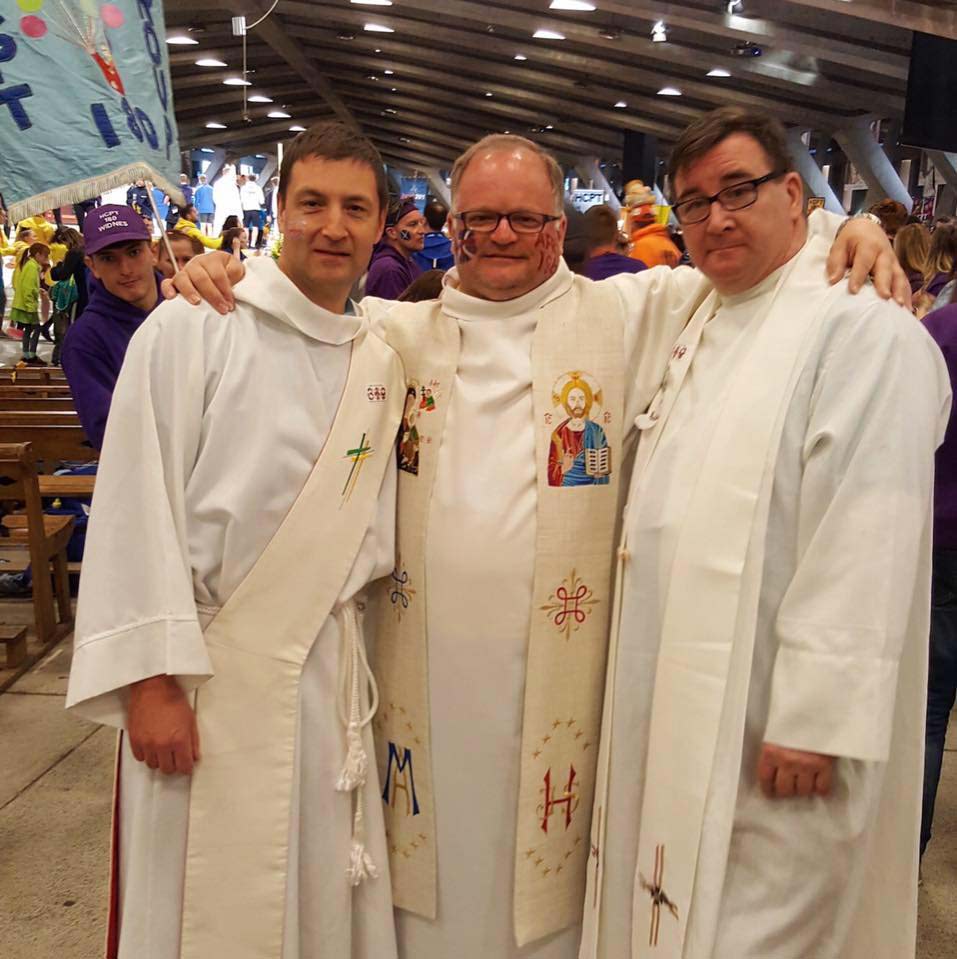
The first deacons, seven men, were called from the community to serve their Bishop (cf. Acts 6:2-4), assisting him in many and varied practical tasks. This freed the Bishop to devote more time to prayer and celebrating the sacraments. From the earliest times the diaconate found its ‘niche’, as it were, serving the needs of the poor, homeless and the destitute- distributing alms to widows, etc. Many great deacons such as St Francis of Assisi provide powerful examples of this sort of ‘service of Charity’ for us all. By their work in this ministry, deacons reveal, and render present today, Christ the deacon who sat (sits) with outcasts and ate (eats) with sinners. This is a most fulfilling part of my ministry personally as I so often find myself with people ‘outside’ the Church, or on the margins of the Church, who crave God’s love in their lives – even if they don’t know it is actually Christ whom they crave! Military chaplaincy (for me, in the Royal Air Force) is a concrete example of this ministry of accompaniment – to be sure, a sacramental ministry – which is exercised on the margins; out in the world and on behalf of Jesus Christ and his Church. The diaconal way is a way of obscurity!
Please pray for greater acceptance of the ministry of deacons and for vocations to the diaconate. Please pray for me and my family.
Prayer: Lord God, we give you thanks that you have given us the service of your deacons. We pray for a fulsome acceptable of the permanent diaconate within the Church and for its nurturing within the community of faith, so that by the witness of their lives of service we all might be inspired to serve as Christ serves; so that the marginalised and the outcast might be welcomed into the family of God, as Christ invites. Amen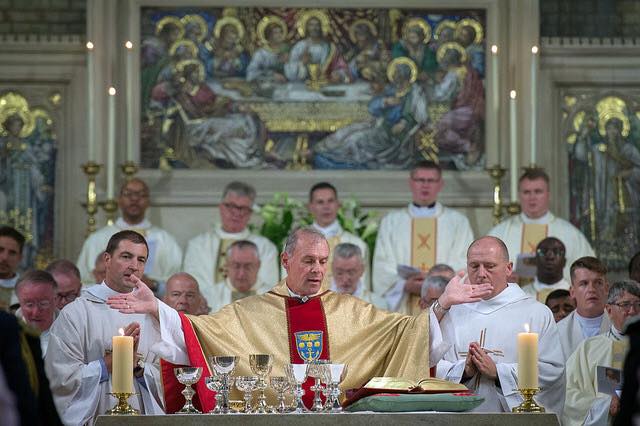
Deacon Dave and Deacon Neil Galloway (RAF) assisting Bishop Paul Mason at his Installation Mass in September 2018. Pictured here with military Chaplains present and past, and the Bishops of England & Wales.
God bless,
Deacon Dave Skillen.
For more vocation articles, please visit the vocation page on our blog.
